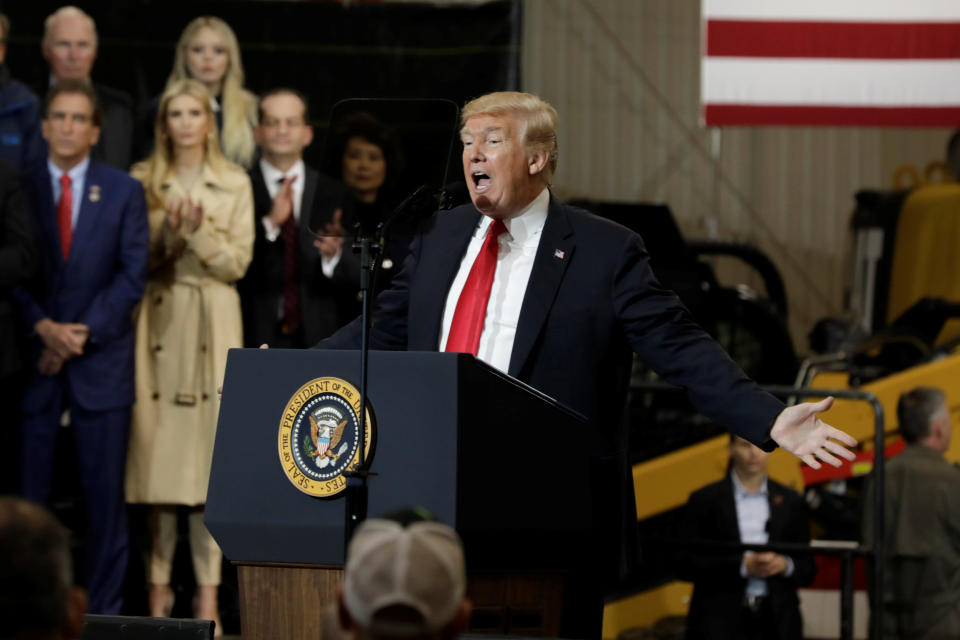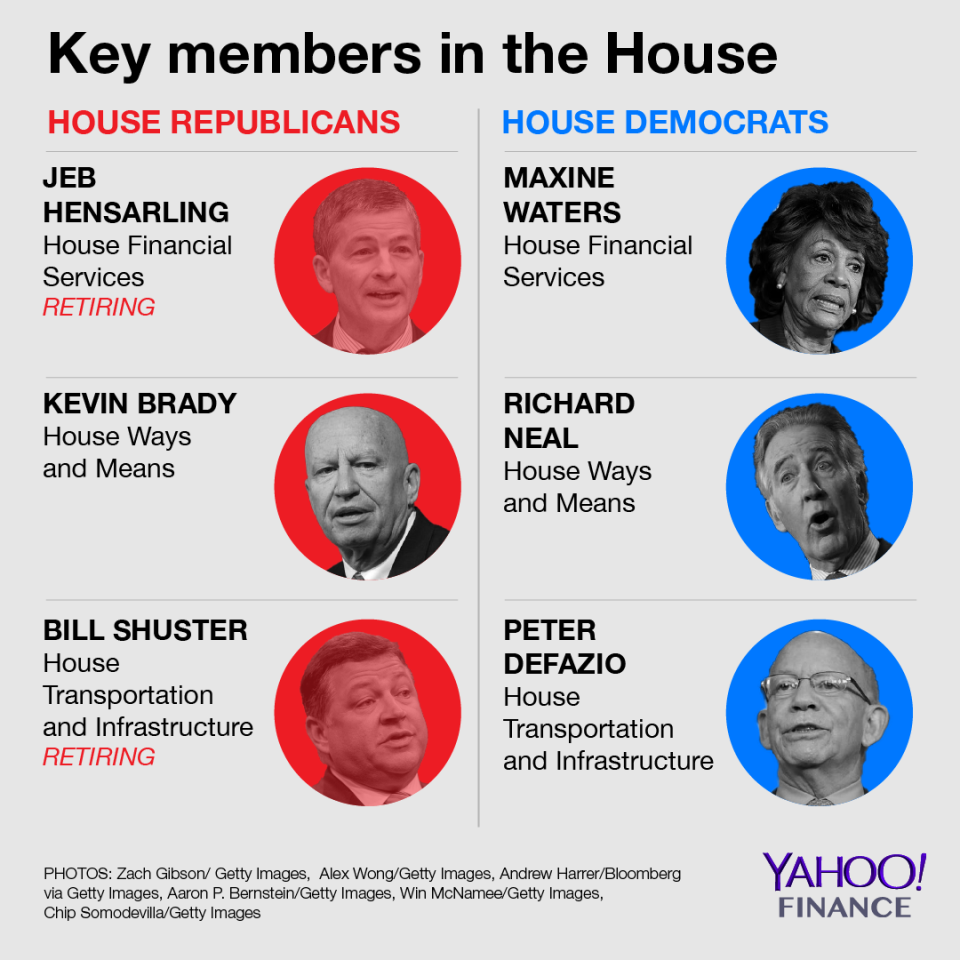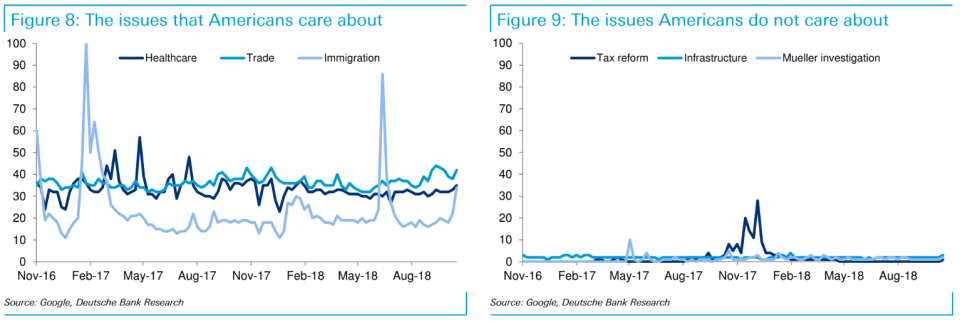Trump and Democrats could compromise on infrastructure

If the Democrats wrestle control of one chamber of Congress from the Republicans, a stalemate on Capitol Hill could grind legislation to a halt. But buzz is building over whether or not President Donald Trump would try to unite with Democrats on infrastructure spending, a heavy priority of the administration during his 2016 campaign.
Wall Street analysts are projecting a Democratic House and a Republican Senate after the polls close on November 6. Craig Holke at the Wells Fargo Investment Institute wrote that such an outcome means that “significant legislative action likely would be minimal until the next presidential election in 2020.”
But both Trump and key Democratic leaders have expressed interest in big infrastructure investments. The White House has held a number of “infrastructure weeks” in which he pledged to improve the country’s network of roads and bridges, an initiative that House Minority Leader Nancy Pelosi said she could support.
“Infrastructure is going to be starting right after the midterms and we think that’s going to be an easy one,” Trump told Fox Business’s Stuart Varney in October.
The obstacle: fiscally conservative lawmakers worried about the country’s rising deficit. Republicans have scoffed at Trump’s $1.5 trillion infrastructure plan, asking how the government would fund the projects.
Capital Economics’s Paul Ashworth wrote that Trump could work with Democrats on a spending bill, which presents some “upside risk” to the slowing economic growth that would otherwise be spurred by gridlock in Washington.
UBS similarly notes that infrastructure could be a point of compromise between the two parties, adding that the energy, industrials, materials, and utilities industries would benefit from any spending.
Skepticism that the Democrats might help Trump
Assuming the Democrats take the House, Nomura said they are “skeptical” that Democrats would be willing to help Trump ahead of his reelection bid in 2020, adding that the two parties differ too much on how to fund infrastructure projects. Democrats prefer direct government spending while Republicans prefer private sector investment.

The political tone was already set when Trump unveiled his infrastructure proposal. Peter DeFazio, the Oregon lawmaker who is the highest Democrat on the House committee on infrastructure, criticized the “embarrassingly small” plan for relying too heavily on private sector funds. DeFazio would likely become chair of the committee if the Democrats take the House.
“I urge President Trump to work with Democrats to find sustainable solutions, rather than sell off our valuable infrastructure to the lowest bidder,” DeFazio said.
Aaron Klein, a fellow of economic studies at the Brookings Institution, told Yahoo Finance that the impasse on how to fund infrastructure will make it difficult for the administration to get any compromise on a bill. But he said there are real economic benefits to doing so.
“Smart infrastructure increases employment, and can increase wages in the short run and productivity in the long run,” Klein said.
But with the economy already roaring and a litany of other political issues cropping up each day, voters may have lost interest in infrastructure spending.

Deutsche Bank analyzed internet searches on Google to gauge voters’ interest on a variety of topics. Tax reform, infrastructure, and the Mueller investigation “barely feature” in voter interest compared to issues like healthcare, trade, and immigration.
Some of the decreasing interest in infrastructure could be related to increasing enthusiasm for defense spending, where the government has poured over $700 billion. As the Wall Street Journal pointed out, recent U.S. economic growth has benefitted a lot from government spending on defense.
“The American public has long been willing to fund defense without economic returns and struggles to gain the political constituency to get the votes to fund infrastructure,” Klein said.
Brian Cheung is a reporter covering the banking industry and the intersection of finance and policy for Yahoo Finance. You can follow him on Twitter @bcheungz.
Read more:
Midterms unlikely to halt Trump administration’s regulatory rollbacks.
Fed Vice Chair Quarles prefers ‘more gradual’ rate hikes
Prudential Financial to shed its post-crisis ‘too big to fail’ label

